Drilling rebar in reinforced concrete
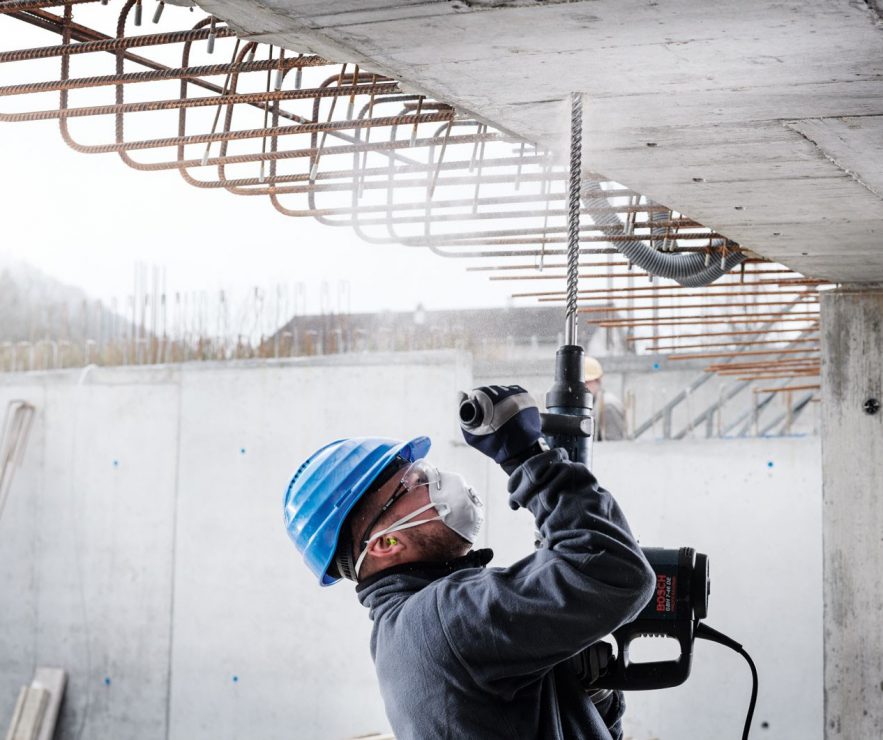
Bosch are renowned for their hard wearing tools, whether that be Diamond-impregnated blades or Tungsten Carbide-tipped drill bits, they have a solid foot in all areas of construction. In this blog we’ll be looking at the Bosch approach to drilling Rebar in reinforced Concrete and how it stacks up to their other products.
Complications of Drilling Rebar
Drilling Concrete is an arduous task to begin with, however it becomes an entirely different job when you throw Steel Rebar into the mix. Whilst hammer bits are excellent for powering through tough concrete, they can come to a screeching halt when they meet Steel reinforcements, potentially laying waste to your expensive bit of kit. This is where the diamond coring bits come into the mix, once swapped out they’ll carve through the Rebar like butter. Whilst this doesn’t sound too bad, it can be expensive having to carry a secondary specialized diamond drilling rig around with you for each bit size you intend on using. It can even become frustrating when you’re met by unexpected reinforcements, and either don’t have the correct coring bit to hand, or have just ruined your masonry bit.
The Bosch Solution
This is where Bosch SDS MAX 8X Concrete and Masonry Carbide Head Drill Bit come in, this abrasive bit has a sharp-tipped carbide head and four blades diffusion welded to it for increased heat and stress resistance. Meaning that when met by Steel Rebar whilst drilling concrete, the bit will pass straight through, thus eliminating the requirement of carrying two bits for one hole, and the potential for breakage when unknowingly drilling Rebar.
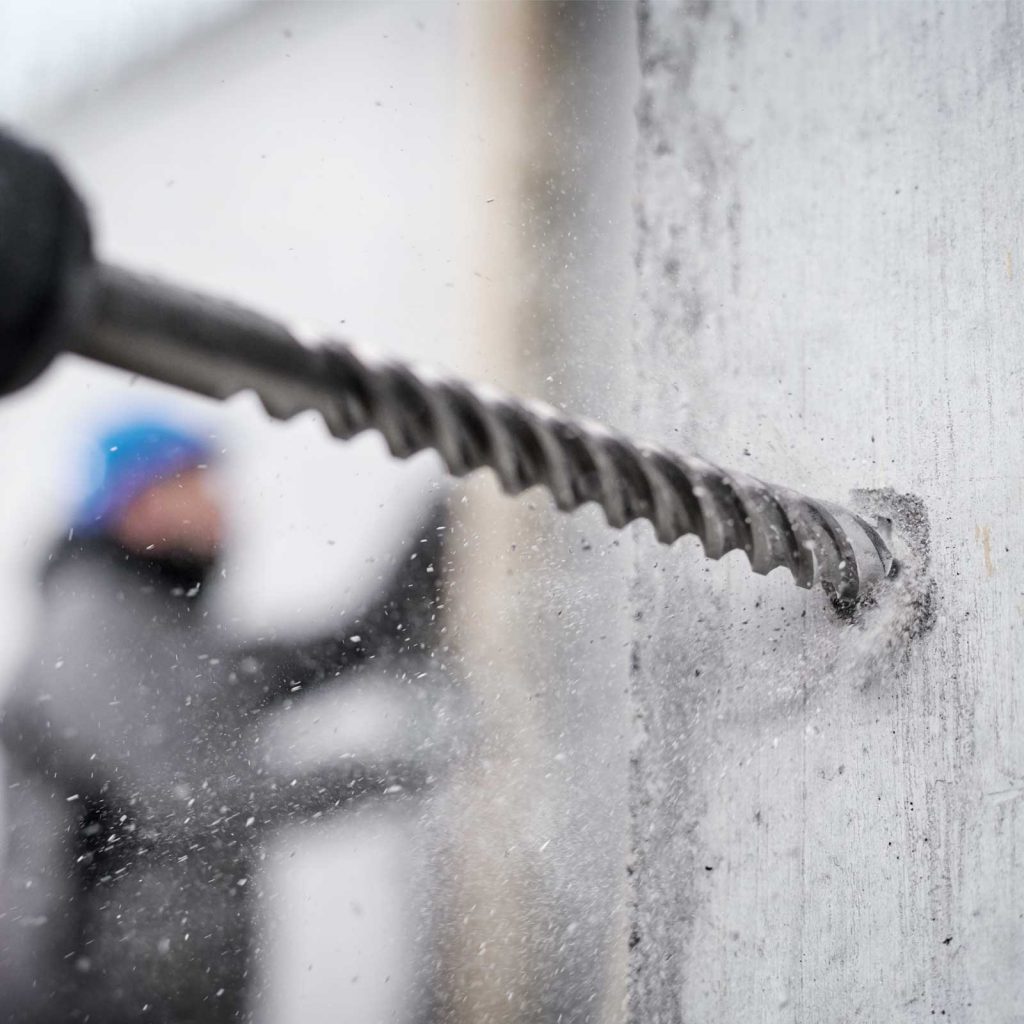
How far will it go?
Whilst being a fantastic product by doing two jobs for the price of one, it is not the cleanest way to solve the problem of drilling Rebar, as the bit will degrade faster than a standard Masonry bit as the Rebar adds extra wear to the tip, making it progressively less effective, something you would see much more slowly on a standard Diamond Coring bit due to the individual specialization, as opposed to the jack-of-all-trades. However, the SDS MAX 8X bit does boast a 50% increased lifetime over SDS MAX bits, meaning that it is very well suited for extensive non-reinforced Concrete drilling as well.
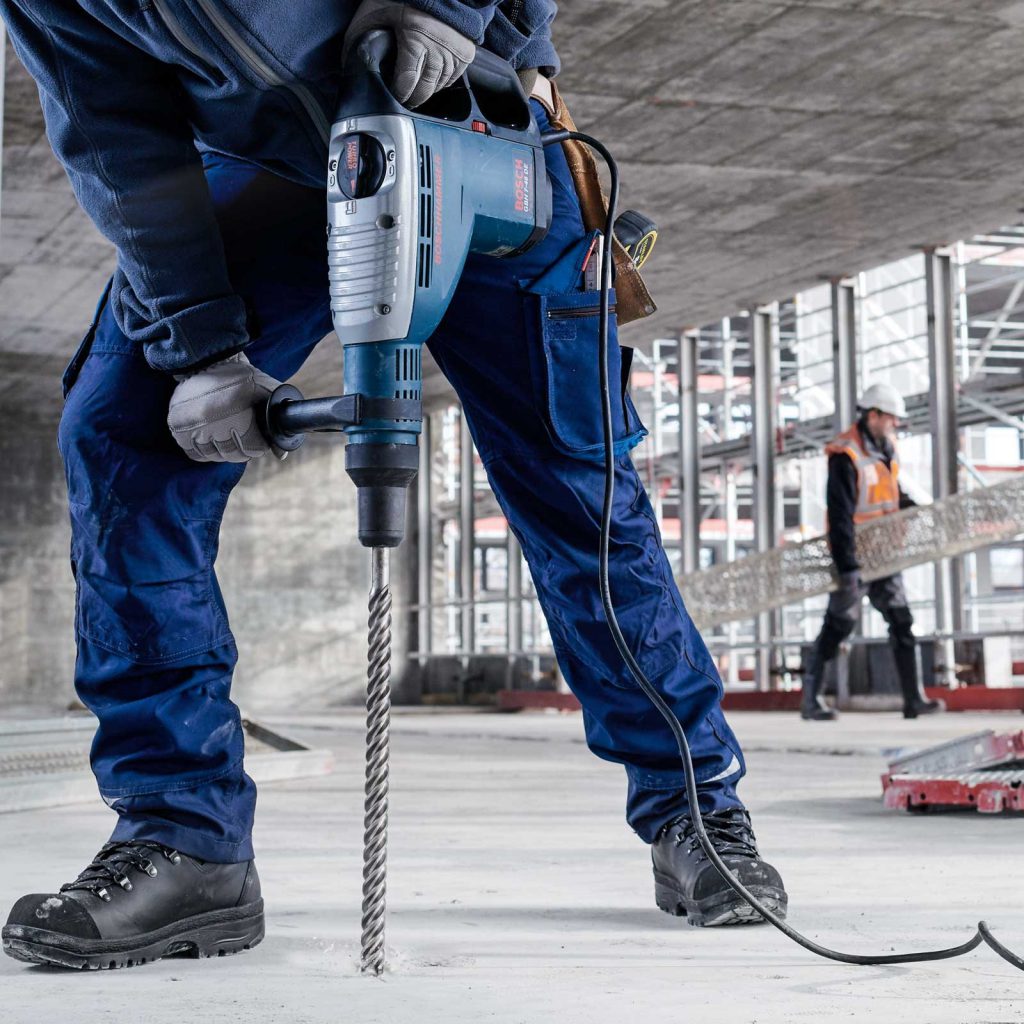
Diamond Core Cutters
Looking at the options for selecting a coring bit for drilling Rebar you’ll notice two types of bit, a universal Diamond cutter, and an SDS Plus Carbide cutter, each offering their own advantages and shortcomings. The Diamond cutter is currently the more popular of the two as Diamonds have been proven in hard wearing cutting tools for years, with Tungsten Carbide relatively new on the scene. Furthermore Diamond cutters are available in a far more diverse diameters, much larger in size than the Carbide bits, offering greater versatility, adding to this the universal nature of the bits allows them to be theoretically used with any Drill-Driver as they are able to cut through roughly 80% of building materials. Their first disadvantage is the fact that they are only rated for drilling light Rebar, and are not recommended for the heavy duty stuff, in addition to this, once worn down the diamonds will dislodge from the bit, decreasing the bits effectiveness.
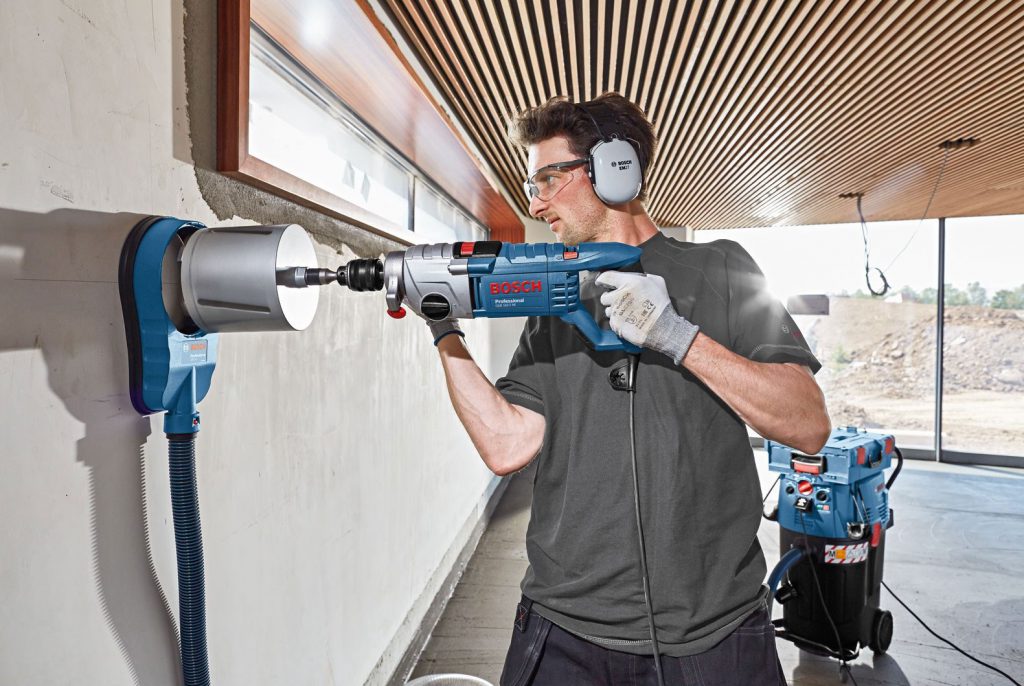
Carbide Core Cutters
On the other hand, the Tungsten-Carbide tipped bits are far harder wearing and more aggressive, so are capable of cutting through heavy duty Steel Rebar repeatedly and are quoted as being “indestructible”. You’ll notice featured on both these and the SDS MAX 8X bits there is an engraved test mark of the PGM Masonry Drill Bit Association Board, guaranteeing compliance with tight tolerances, exact drilling and the firm hold of fixings. The issue here is that these bits are only available in a restricted number of sizes, and are only SDS Plus compatible, drastically decreasing the versatility of this fantastic cutting tool.
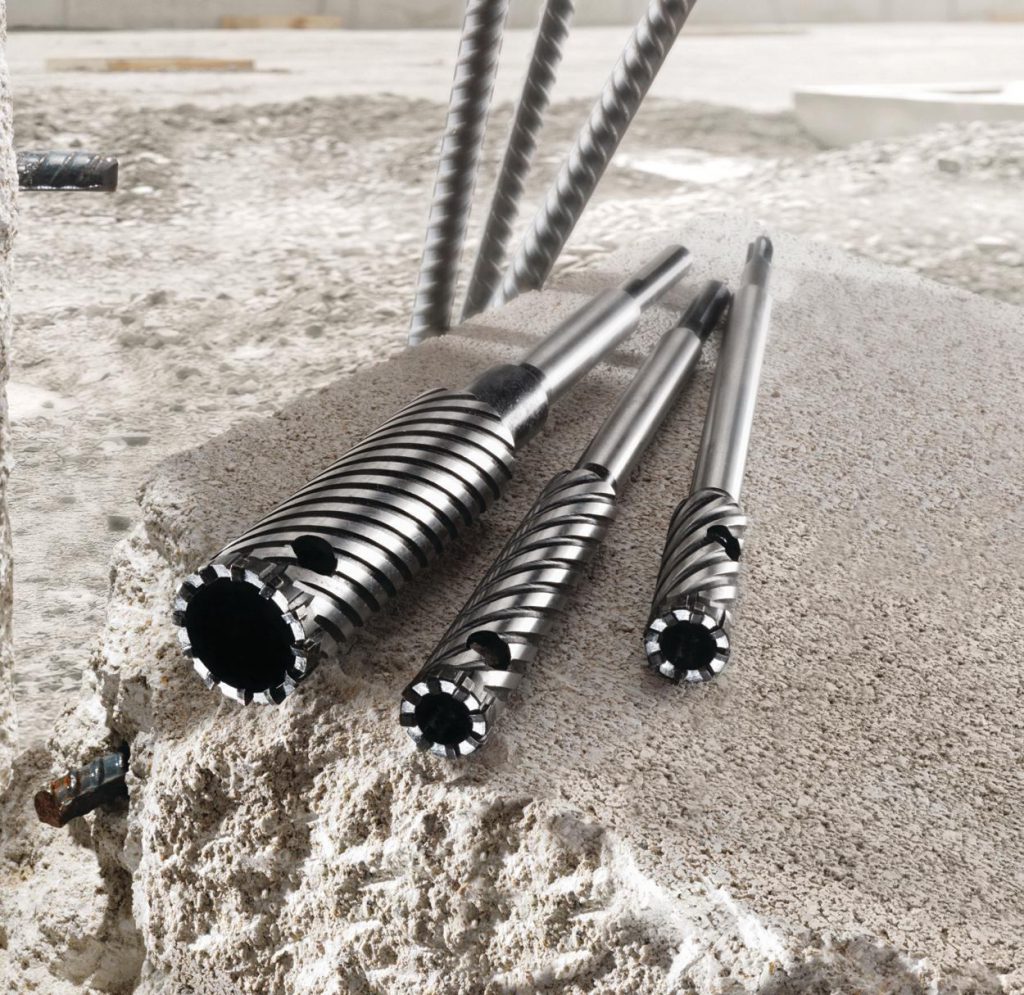
A Word of Warning
Whilst Bosch offers a class-leading range of cutting tools for drilling Rebar it is important to note that you should always check with Structural Engineers that you have approval for every cut before you make it. The Tungsten-Carbide teeth will quickly chew through any Rebar, a job difficult to undo if done incorrectly or accidentally. Furthermore, it is vital that you correctly protect yourself when drilling concrete. Concrete contains Silica and thus generates Silica dust when drilled, inhalation of Silica dust can lead to Silicosis – a very serious lung disease. Bosch offers a bit for drilling lightly reinforced concrete that has dust extraction built into the bit itself in an attempt to minimize the production of the hazardous dust. The SDS MAX-9 Speed Clean features two extraction holes at its head which connect to an internal cavity leading to a vacuum connector. Please refer to the site manager and health and safety bodies for full comprehensive guidelines on personal protective equipment setup when drilling reinforced concrete.
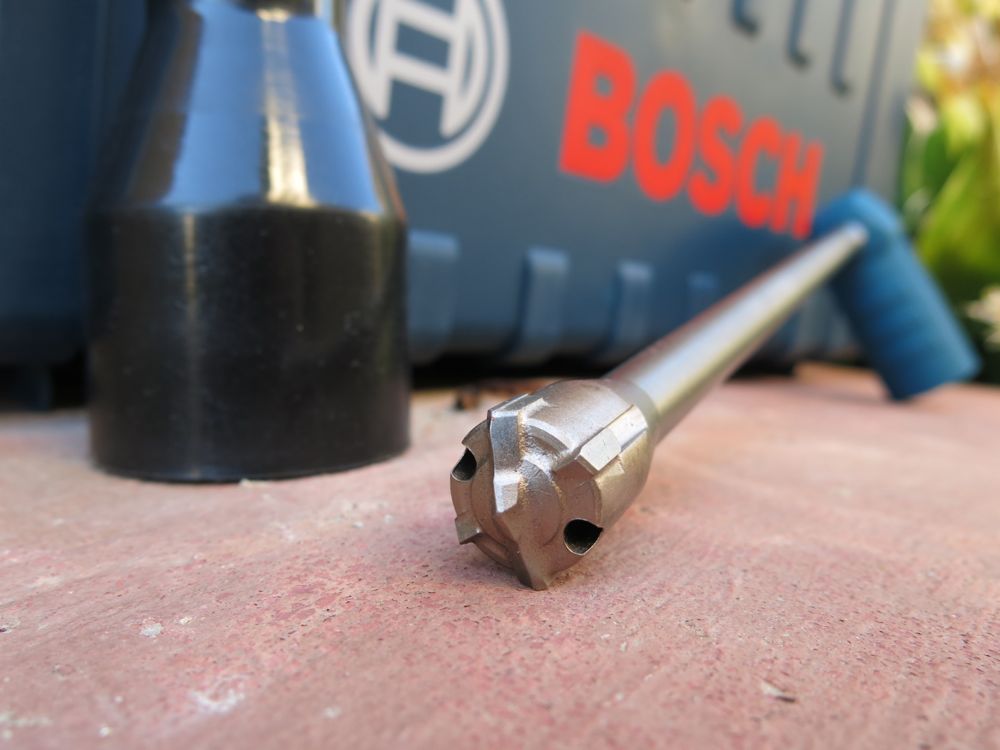
Categories mentioned in this article:

Thanks for sharing valuable information!